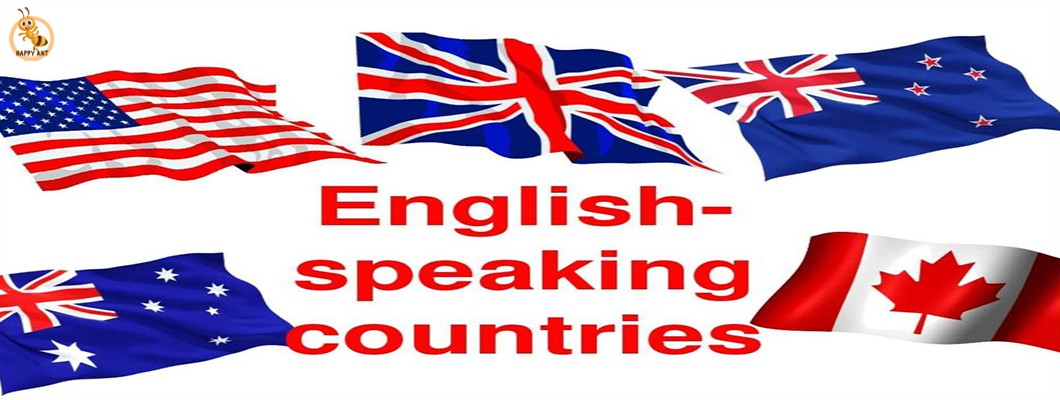
English has approximately 400 million native speakers worldwide in English-speaking countries, second only to Mandarin and Spanish. However, it is also the most popular second language. As a result, when native and non-native English speakers are combined, it is recognized as the most common language in the world.
In fact, English is recognized as an
official language in a total of 67 different countries as well as 27
non-governmental organizations. In addition, English is a major business
language and also the official language of some of the world's most important
institutions, including the United Nations, NATO, and the European Union.
What are the English speaking countries?
English is perhaps most associated with the United States and the United Kingdom. There are about 230 million native speakers in the United States, making it the largest English-speaking country, while the United Kingdom has approximately 60 million native speakers.
Despite having two different official languages, Canada ranks third among the English-speaking countries in terms of population with about 20 million native speakers. While Australia is next in the list with about 17 million people.
Some other notable countries around
the world where English is the primary language include the Republic of
Ireland, South Africa, and New Zealand. In total, the three countries are
thought to have a population of around 13 million people who speak English as
their first language.
An overview of English-speaking countries
Below, we present some of the most
important countries that speak English as an official language. Countries are
classified according to their geographical location. The official language is
the language that the citizens of that country use in interacting with their
government. It should be noted that some of the countries mentioned have more
than one official language and therefore, English may not necessarily be the
most common mother tongue.
North America: United States, Canada
United Kingdom: Republic of Ireland, Malta
Caribbean: Jamaica, Barbados, Trinidad and Tobago, Bahamas, Guyana
Oceania: Australia, New Zealand, Papua New Guinea, Fiji, Samoa, Tonga, Solomon Islands, Micronesia, Vanuatu, Kiribati
Asia: India, Pakistan, Singapore, Philippines, Sri Lanka, Malaysia
Africa: South Africa, Nigeria,
Cameroon, Kenya, Zimbabwe, Ghana, Rwanda, Sudan, Botswana, Ethiopia
How to spread the English language around the world
The English language originated in Britain. The ever-expanding British Empire spread modern English around the world during the 18th and 19th centuries. This is why many countries where English is the official language were former British colonies. including Canada, Australia, South Africa and the United States.
English is also widely used in India and parts of Africa. Although Hindi is the most widely spoken language in India today, English remains an official language in the country and is often used in university education and politics.
Officially, only 12% of people in India speak English, and many speak it only as a second language. However, the country has a very dense population. This means that this 12 percent of the society is more than 100 million people. As a result, India has one of the largest English-speaking populations on the planet.
During the 20th century, the United States emerged as a major political superpower, particularly in the years following World War II. Its influence, along with Hollywood films and the journalistic work of the British Broadcasting Corporation, caused the language to continue to spread throughout the century.
English is the only official language
of the Commonwealth of Nations. It is also the recognized official language of
several non-sovereign entities, including Gibraltar, the Falkland Islands and
Bermuda. At the beginning of the new millennium, English was the most widely
spoken language ever.

Leave a Comment